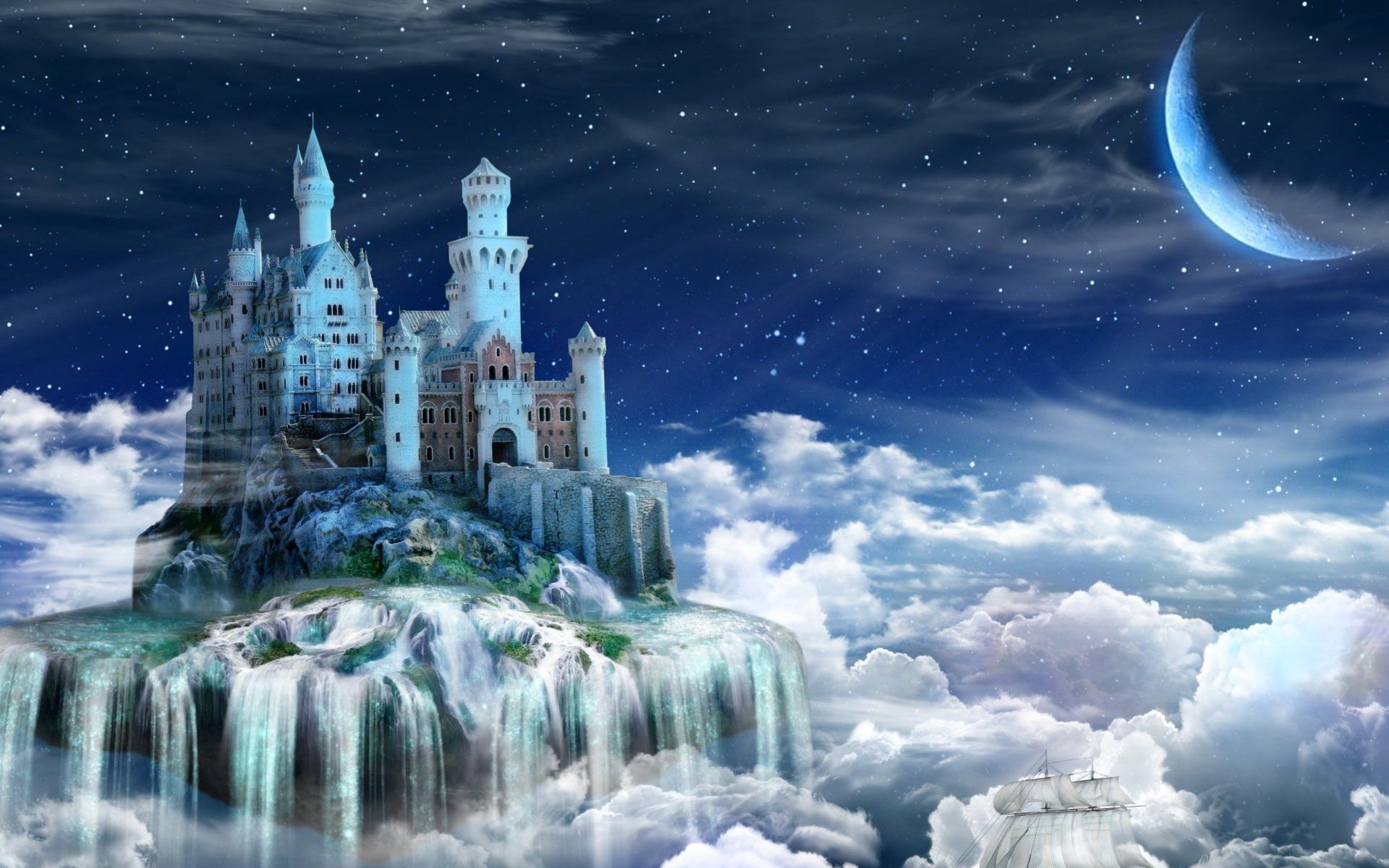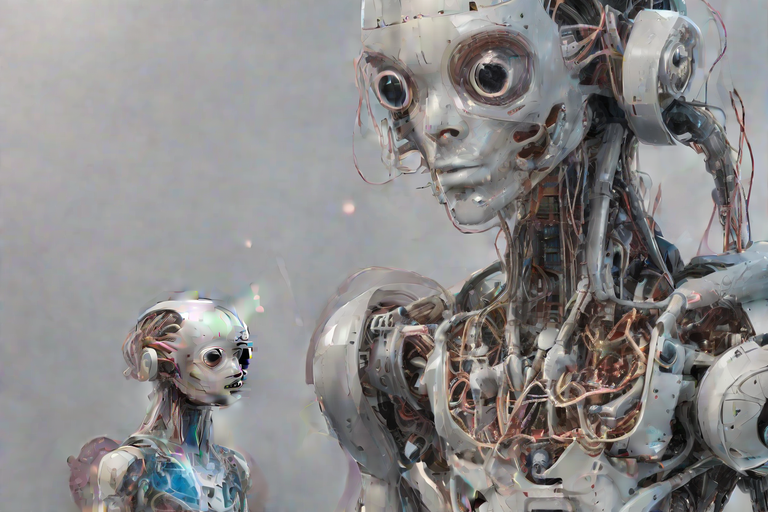The situation of the self is infinitely sterile and this is why it always has to be entertaining itself with nonsensical trivialities!
The self doesn’t have any choice in this matter – strange as it might sound, all it can safely cope with (i.e. all it can deal with without endangering its continued existence) are ‘nonsensical trivialities’. Anything else is no good for it at all. Anything else – anything that isn’t empty entertainment – would challenge the self and the self can’t stand to be challenged. That’s not what it’s about at all…
Another way to put this is to say that the self is only at home in the world of ‘surface-level appearances’. It is only safe in the world of surface-level appearances – anything else would destabilize it, anything else would disturb, disrupt (and ultimately destroy) its flimsy integrity. The self is only a surface-level appearance anyway and so of course it can only safely exist in a world that is made up of surface-level appearances! A world where things are not what they appear to be (a world where things are not what they say they are) would be very unsettling indeed. More than unsettling, a world where things are not what they seem would straightaway throw everything into doubt – it would immediately induce a state of profound existential vertigo. For the self, existential vertigo (which Kierkegaard calls the ‘dizziness of freedom’) translates very quickly into fear.
A world where everything is not what it seems is a ‘non-literal world’. It is ‘a world of metaphor’. Things aren’t what they say they are – that’s just a kind of a gimmick, a kind of a ruse or device. A metaphor doesn’t mean what it says – it means something else entirely, something that can’t be said. A metaphor doesn’t point at the known – it points at the unknown, only the unknown of course can’t be pointed at! The world of metaphor isn’t meant to be taken seriously, at face-value – if we do that then we’ve fallen head-first into the bottomless pit of concrete thinking. And actually this has already happened to us – if we don’t understand that everything is metaphor then we’re already hopelessly stuck in concrete thinking. This is where we usually are. This is the default mode – to be stuck in concrete (or literal) thinking…
“Nature loves to hide” says Heraclitus but we don’t get this at all. We assume nature to be ‘up front’, not veiled at all, so that there is no need to look beneath the surface. This means that there isn’t a surface because if the surface is ‘all that there is’ then the surface is actually the whole world, the surface is actually ‘the entirety of what exists’. Nature throws up a playful veil to hide behind and we take that veil as being all that there is, and we are content to live on this basis. We lack all sense of irony about what it means to exist in this world, therefore. We insist on interpreting everything literally – no matter what kind of a ridiculous situation this puts us in. By taking everything literally we make preposterous fools of ourselves. I would rather go around as a fool who cannot see himself to be a fool, a clown who cannot see himself to be a clown, rather than recognize that I am living in a world that is deeper than the world which my literal mind tells me I am living in. God forbid that I should find that out!
The everyday literal mind provides us with a concrete description of the world (a description that is based upon its prosaic routine categories) and we proceed to live in this description. We prefer to live in the literal mind’s description of reality because at least with the literal description we know where we are! We know where we are and we know what we are about. We know this because the ‘literal machine’ which is the categorical mind has told us, and we have chosen to unquestioningly believe this mind in all things. The categorical mind is our master – our humdrum routine thoughts are our master…
The real world isn’t a world of concrete descriptions and literal facts, it is a world of metaphor, and the thing about a metaphor is – as we have said – that it pretends to be what it isn’t by way of a ruse or device. Appearances are only a ruse, therefore! The Infinite is trying to show itself in the finite but we are too dull-witted to get it. The Eternal is trying to show itself in the temporal, the sequential, but we are too superficial and hasty to appreciate it. We are surrounded by poetry and yet all we see are dull facts, like the list of ingredients on the back of a packet of breakfast cereal, or a set of instructions in the pamphlet telling us how to use our new appliance. We are regularly told by an army of tedious ‘experts’ that this is true and that is true, that this is ‘a fact’ and that that is ‘a fact’, and we are foolish enough to believe them. Yet how can there be ‘facts’ in a world of metaphor?
We think that we live in a world made up of facts which we can live in by simply following rules. We think that personal development is a matter of absorbing information and learning new ‘skill-sets’. We think that life can be lived according to instructions. This is how dumb we are! And yet in another way we’re not dumb at all – we’re actually very clever! The literal of concrete self can after all only continue to exist in a world of concrete facts, in a world of officially-designated meanings, and on some level or other it knows this very well. If the concrete self wants to ‘hang onto itself’ (which it does!) then it has to make sure to stay safely in the world of surface-level appearances. As we have said, I can’t simply afford to let myself realize that I’m living in a world that is deeper than my trivial, never-questioned understanding of what that world is. I simply can’t afford to question, full stop!
According to P.D. Ouspensky, the False personality –
…cannot and does not wish to remember itself, and it does not wish to let any other personality remember. It tries in every possible way to stop self-remembering, takes some form of sleep and calls it self-remembering. You must not trust your false personality…
Suppose I do get interested in looking into things a little deeper. Suppose I do start getting curious about whether or not there is anything behind the veil of everyday appearances. Well in this case there is always the risk that I will uncover something. There is always the risk that the False personality will remember something that it doesn’t want to remember! There is always the risk that I will discover that there is something behind the veil of commonplace appearances, which would of course mean that the world of surface-level appearances is not what it says it is after all. It would mean that I have ‘seen through the conspiracy’ – and this is a pretty disturbing thing, a pretty frightening sort of a thing. I have opened up a door, but do I really want to go through it?
Seeing that things are not what they are supposed to be is opening up a whole big can of worms. On the one hand the world that I am used to, the familiar world of commonplace appearances – aside from being safe – is also spectacularly boring and tedious and this means that uncovering a whole new (and totally unexpected) level of meaning is extraordinarily exciting! This isn’t mere crappy ‘entertainment’ – this is something real! On the other hand, this type of revelation, this type of ‘opening up’ (or ‘remembering’) is also potentially very frightening, precisely because it is real and not mere hollow entertainment. Hollow entertainment is the only thing that keeps me safe and secure, after all!
What happens when I forsake my usual fare of crappy, banal, superficial entertainment is that I start to dissolve, I start to come undone. What happens then is that I start to ‘come apart at the seams’, just as the world of surface-level appearances is doing. The literally-understood self is a nominal appearance living in a world of nominal appearances and so when this world starts to come apart at the seams then so do I. The big question at this is point is therefore “Just how curious am I?” The question I am faced with is “What do I care about most – finding out what the truth is, or staying in my nice, secure, non-challenging ‘comfort bubble’?” Or we could say, the question is, “Do I want to take the red pill or the blue pill?”
Almost always, then answer that come back is that I am not that curious after all. The answer is that I want to take the blue pill, and quick! Almost always, my allegiance proves to be to the world of mere hollow entertainment, to the world of empty ‘nominal designations’. I want to return to the world of surface-level appearances, infinitely sterile as it may be. And the thing is, just as soon as I return to this world I will forget that I ever made such a decision! Not only do I instantly forget that I have made it, the decision is so quick and so automatic that I don’t even notice myself making it either. This is therefore the decision that we make for ourselves without even knowing that we are making a decision. We can’t allow ourselves to know that we have made (or that we are making) that decision – that knowledge would not be safe! ‘Forgetting’ is the rule in the world of surface-level appearances.
So what happens, when we make this decision that we don’t let ourselves know about is that we are condemning ourselves to a life of mere empty entertainment! This is what lies in store for us. Empty entertainment is going to be the beginning and the end of everything that happens to us from now on. This is what’s on the menu. And if we were to be a bit slow on the uptake and ask what this ‘life of empty entertainment’ is all about, the answer would have to be that it’s not about anything. It’s empty! Of course it doesn’t let on that it’s empty – there is always the superficial impression of something going on, but what’s going on really is nothing. As Shakespeare says in the well-known (but little understood) quote, “Life is a tale told by an idiot, full of sound and fury, signifying nothing”.
Empty entertainment is only ever going to be empty entertainment, no matter how much of it we endure. We can’t really expect any more out of it. As far as ‘expecting something out of it’ is concerned, we’re going in the wrong direction entirely. We’re heading down a dead-end. We’re backing the wrong horse. And yet we’re a long, long way from seeing this – we couldn’t be further away. As far as we’re concerned, the horse still might come in, for all that it’s got no legs! As far as we’re concerned, some of the empty entertainment might not be empty entertainment – there might be something genuinely significant there mixed in with it! It’s as if we were in a shop, the shelves of which are stacked with cheap and tawdry garbage, worthless plastic trash of one sort or another. Instead of walking out and saving our money, we peruse the shelves, one item after another catching our attention. We are convinced that there is something of value to be had there if only we could find it and this groundless conviction gives us the motivation to keep on looking. If we were able to see – at one glance – that its all trash, that the shop we’re in sells nothing but trash, then this would be equivalent to seeing what Milarepa calls the ‘vacancy’ of samsara. If we don’t see it, then we’re stuck in samsara. If we don’t see it then we’re left sifting through all that endless empty entertainment waiting for the nugget of gold that just isn’t there…
The world of surface-level appearances is a quintessentially restless place to be therefore – a place where we never find what we’re looking for. All that happens here is constant ‘sifting, sifting, sifting’. If we ever stop restlessly searching then a vague awareness of the dreadful sterility and futility of our situation starts to creep up on us and we say that we feel bored. If we manage to stay still long enough without any restless searching (without being totally engaged in restless thinking) then we are eventually going to go beyond feeling bored – after going through all the boredom and all the negativity that is pursuing us we will start to get a real intimation of the frightening hollowness of the type of activity that we’re habitually involved in. What is more, we will start to realize that there is a quality of peace and wonder in stillness that is never to be found in searching.
The strange thing is that when we are fully engaged in ‘searching, searching, searching’ (or ‘thinking, thinking, thinking’) then we all too quickly lose this valuable insight into the pointlessness, the tiresomeness, and the stone-cold futility of what we’re doing and we will get caught up in it all over again. This is like a gambler who, when he is caught up in the fever of his addiction, doesn’t see the terrible insanity of what he is doing. When we’re caught up in the insanity, we don’t see it…
When we’re fully-engaged with the world of surface-level appearances (which is the same thing as ‘the world of mental objects’) then what happens is that we are identifying with a mechanical reflex – a reflex that is generated by the mind-created world that we are engaging with. This ‘reflex’ is our idea of ourselves, which Krishnamurti calls ‘the self-image’, and which Gurdjieff calls ‘the False personality’. The self that we take ourselves to be is a reflex of our searching, therefore – it is automatically (or reflexively) created by the fact that we are taking the world of surface-level appearances so seriously.
Wanting creates ‘the wanter’, searching creates ‘the searcher’, thinking creates ‘the thinker’! The goal creates the one who is attracted to the goal, the one who is fixated by the goal, the one who is somnambulistically hypnotized by the prospect of attaining the goal. As Adyashanti says,
And who is this me? It is nothing more than a sense of self caused by identification with grasping and aversion.
The ‘reflex-self’ has zero insight into any of this. It has zero insight, full stop. What it ‘knows’ is simply a reflection of the literal world that it believes in, and no more. The reflex self is an extension of the world of surface-level appearances that it takes so seriously. It has no independent existence whatsoever, therefore. It is controlled absolutely by the literal (or concrete) world that it believes in. And the irony is that this literal or concrete world doesn’t really exist since it is a description of the world, not the world itself! I am therefore ‘controlled by my own concrete description of the world’ and not only am I controlled by my own description of the world I am also created by this description of the world, since as far as I am concerned I am nothing more than my own description of myself…
So when I do sit still, and don’t give in to the restless urge to forage in samsara, then I am no longer so tightly identified with this mind-created identity. When I disengage from the ceaseless searching and striving I am no longer so tightly identified with this mechanical ‘reflex-self’ which has no insight (and no curiosity or sense of humour either) and which is controlled absolutely by the world of surface-level appearances. I am no longer completely absorbed in ‘nonsensical trivialities’. I am no longer totally caught up in the ‘compulsory entertainment’ that my mind is always dishing up for me.
Instead of being manipulated by the constant barrage of my thoughts and the mind-produced objects it shows me, I start to take an interest in the world that isn’t a ‘mental object’, the world that isn’t a mere projection of my own hopes and fears, my own mechanical ‘attraction and aversion’.
It is at this point that I start to develop a healthy fear of ‘the vacancy of samsara’ – a fear which is the only possible sane response! The way that we usually are, however, when we are completely immersed in ‘the world of surface-level appearances’, is that we don’t have any fear at all.
Samsara is utterly vacant, utterly barren, utterly sterile, but at the same time it is the only thing we are interested in!
Image – fandom.com






